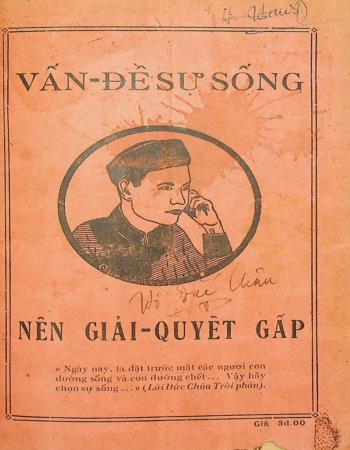
| Tác giả | : | Lewis, C. S. |
|---|---|---|
| Nơi xuất bản | : | San Diego / New York: Harcourt Brace & Company, 1988 |
| Thông tin trách nhiệm | : | C. S. Lewis |
| Mô tả vật lý | : | 141 pgs. Paperback 13x20.5cm |
| Tóm tắt/ chú giải | : | FROM THE BACK COVER: In this, one of his most popular books, C. S. Lewis sheds light on the eternally provocative subject of love. With his characteristic insight, humor, and acute judgment, Lewis categorizes and describes all the natural loves. Affection binds parents and children, neighbors who have nothing in common, humans and their pets; it is love owed, rather than earned; it grows out of familiarity; it ``is indeed the least discriminating of loves.`` Eros - not pure physicality but the more complex feeling of being ``in love`` - may inspire great sacrifice, but to potentially destructive ends. Friendship is ``the least biological of our loves,`` the most spiritual in nature, but also the most inclined to snobbery. Each of these loves has its particular joys, and each its own proximity to hatred. For Lewis, no natural love can prosper except in the presence of the Fourth Love, Charity, which is both the love of God and the selfless love of others. And though every kind of love carries its particular risks, Lewis exhorts us not to avoid them, for ``hell is the only place outside of heaven where we can be safe from the dangers of love.`` ``The Four Loves [is] a modern mirror of souls . of the virtues and failings of modern loving. Lewis combines a novelist`s insight into motives with a profound religious understanding of our human nature.`` -Martin D`Arcy, The New York Times Book Review |
| Đề mục | : | |
| Ngôn ngữ | : | 0 eng |
| DDC | : | 243 / C642-L67 |
| SĐKCB | : |
|
Sách cùng tác giả


The Chronicles of Narnia
U.S.A.: HarperTrophy (HarperCollins), 1994


The Chronicles of Narnia
U.S.A.: HarperTrophy (HarperCollins), 1994
Sách cùng khung phân loại


Thông Điệp của Thượng Đế cho mỗi Gia Đình
Saigon: Trường Thánh Kinh Hàm Thụ Si-ôn. Hộp thư 2316., 1971


Vấn Đề Sự Sống Nên Giải Quyết Gấp
: Nhà In Tin Lành Đà Lạt, 1954





